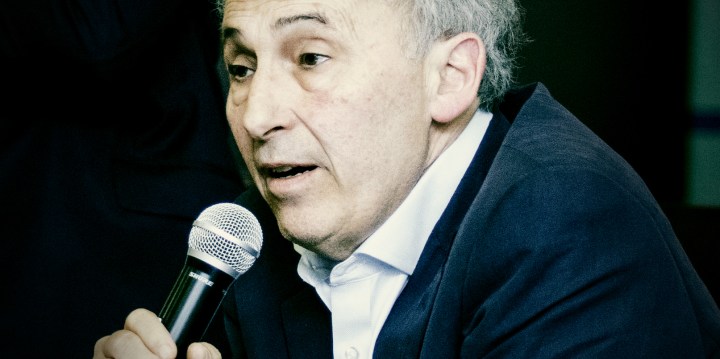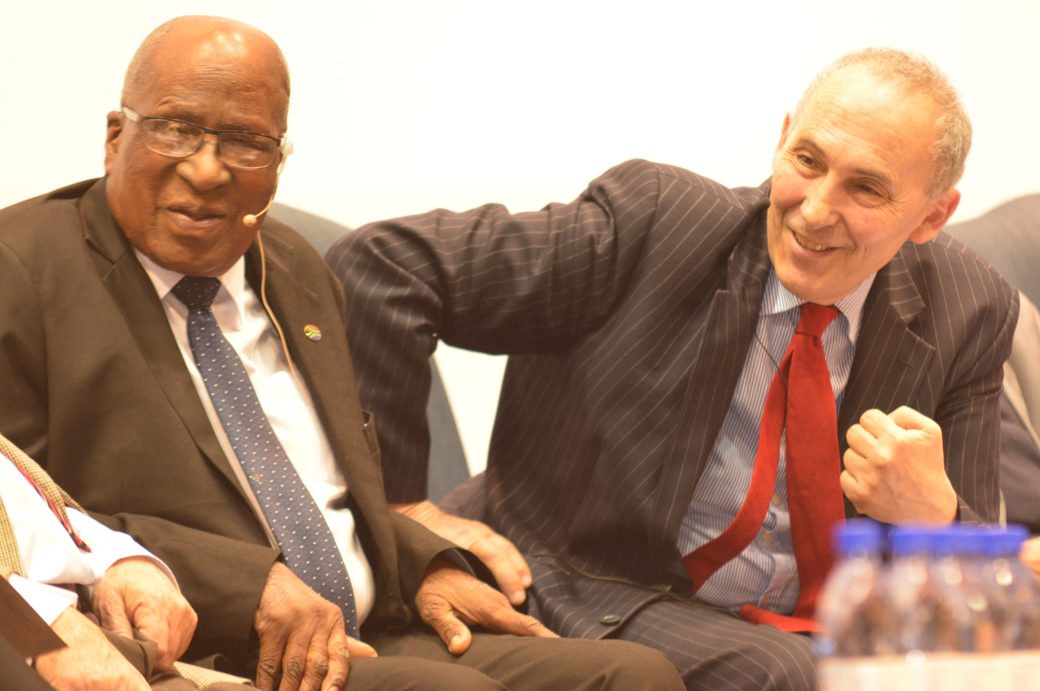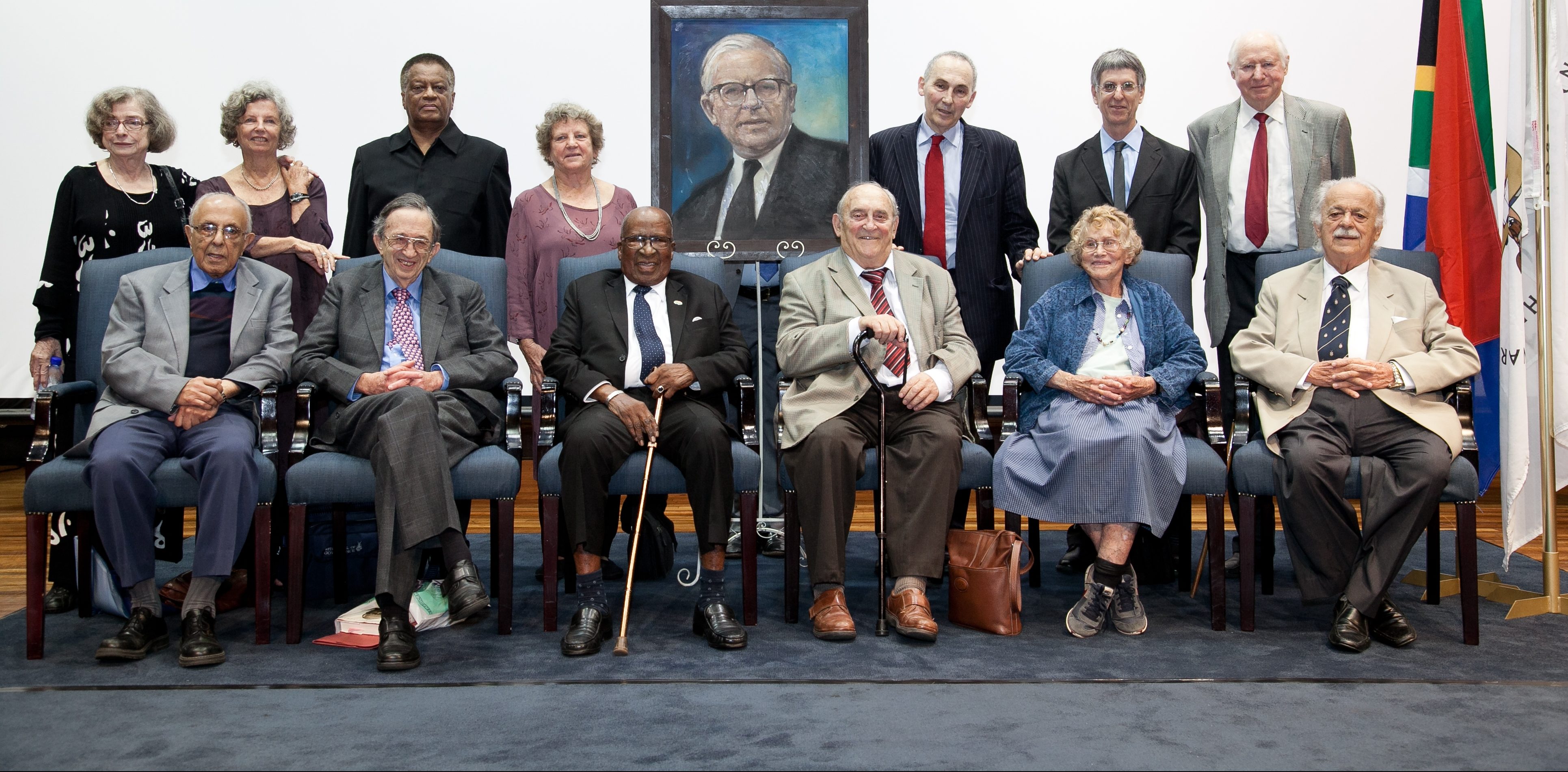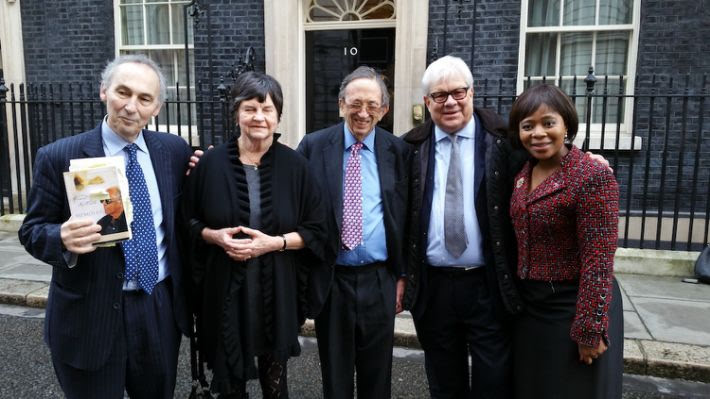TRIBUTE
Sir Nicholas Stadlen — the English judge who feted ‘Mandela’s unsung heroes’

Sir Nicholas Stadlen, who has died in London at the age of 73, believed passionately in the future of South Africa and that despite all the problems besetting the country, in the long run the values and vision of the Rivonia generation would prevail.
A chance meeting with the late Rivonia defendant and anti-apartheid hero Denis Goldberg in Cape Town changed the life of a former English high court judge and inspired him to seek a wider audience for “Mandela’s unsung heroes”.
Sir Nicholas Stadlen KC, who died on 5 October aged 73 after a long illness, spent the last decade of his life researching the “backstory” of the 1964 Rivonia trial which saw Nelson Mandela and seven co-defendants sentenced to life imprisonment for sabotage.
The trial changed the course of South African history and led 30 years later to the country’s first democratic elections.
Stadlen’s research resulted in an award-winning documentary, Life is Wonderful: Mandela’s Unsung Heroes, the creation of a charity to fund the screening of the film at 6,000 state schools in South Africa, and dozens of articles about the surviving Rivonia defendants and legal team.
After retiring as a judge in 2013 following six years on the Bench, Stadlen was on a visit with family in Cape Town when Mandela died on 5 December 2013.
He was struck by the overwhelming local and international media coverage that was devoted to the Mandela story and the Rivonia Trial, and by how little most people knew about Mandela’s colleagues and the legal team led by the brilliant Afrikaans lawyer Bram Fischer.
Stadlen read an article about Denis Goldberg in the Cape Times, called the newspaper for his contact details, and then rang Goldberg, who immediately invited Stadlen and his wife, Frances, to spend the day in the Goldberg home overlooking Hout Bay Harbour.
“It was a life-changing experience,” Stadlen wrote in a tribute after Goldberg died in April 2020.

Andrew Mlangeni and Nick Stadlen at Wits University on 31 March 2015. (Photo: Wits University)
Stadlen was mesmerised by the courage and integrity of the Rivonia co-defendants and the sacrifices they made for a “higher purpose”.
He was humbled by the fact that they were not only prepared to die for the cause but almost invited the death penalty by endorsing Mandela’s famous statement from the dock that “if needs be” he was prepared to die.
Stadlen was also intrigued, as a practitioner of the law, that both Mandela and Fischer had demonstrated in their respective trials that the only way to honour the rule of law in apartheid South Africa — which they so profoundly believed in — was to break laws which were immoral and had not been endorsed by the majority of the population.
Stadlen had internalised the stories of his parents who both fled the Nazi Anschluss in Austria in their youth and knew of the trauma of a great uncle, Friedl, who waited too long and then took his own life rather than live under Nazi rule.
Compassion and generosity
Stadlen’s lifelong professional role of implementing the rule of law — first as barrister then as judge — does not tell the full story of his compassion and generosity in his daily life.
According to his eldest son Matthew, a broadcaster, he was constantly helping people who had been dealt an unfair hand in life.
Stadlen was a powerful and persuasive advocate of the values and vision that he believed in and there was no room for compromise on principles.
Much of his idealism and commitment to human rights came from his mother Hedi (née Simon) — a passionate anti-colonial activist who studied moral sciences at Cambridge at a time when women could graduate but were not allowed to attend their graduation ceremonies.
She campaigned for Indian independence with Indira Gandhi in London and her first marriage was to an activist in Ceylon (now Sri Lanka) who headed the Communist Party in that country while she organised strikes and protests as a trade union organiser.
She later reconnected with Peter Stadlen, Stadlen’s father, whom she had met in Austria, while on a trip to London and they married. Hedi was a musicologist of note and Peter was a celebrated concert pianist who later became a music critic in Britain.
Nicholas Stadlen’s human rights education was ignited while on a gap year in the US in 1968, the year Martin Luther King was assassinated in Memphis, Tennessee. Stadlen caught a bus to attend his funeral in Atlanta.
“I grew up with a very strong sense of the wickedness of apartheid and of the wrongness of the rebel tours to South Africa”, said Matthew, a broadcaster and writer.
As president of the Debating Union at Cambridge, his alma mater, and during a second “gap year” before becoming a judge, Stadlen interviewed a series of prominent global figures in podcasts under the title Brief Encounter on The Guardian’s website.
They included former South African president FW de Klerk, Archbishop Desmond Tutu, Shimon Peres, Hanan Ashrawi and Gerry Adams.
Stadlen was involved in the setting up of the British Irish Association in a bid to secure peace in Northern Ireland.
From the day spent with Goldberg in Cape Town, Stadlen learnt of the other two surviving Rivonia defendants — Ahmed Kathrada and Andrew Mlangeni, both well into their 80s — and the then surviving members of the legal team: Lord Joel Joffe, George Bizos and Denis Kuny.
A sense of mission
Stadlen knew that he had to move fast to record their interviews for the documentary which he produced, directed and narrated, and edited with the help of his cousin Jonathan Stadlen.
He was seized with a sense of mission and radiated the enthusiasm of an activist half his age.
He wanted their lives and values to be better known abroad and in particular among the youth in South Africa to ensure that their vision was kept alive and that the country’s hard-won democracy endured.
“I thought that young South Africans have the right to know about these unsung heroes and I resolved to record their stories,” he said.
The film was screened more than 100 times to invited audiences on four continents at which Stadlen would appear and lead discussions after the film had been viewed. It was also broadcast on Britain’s Channel 5 and South Africa’s M-Net.
It was screened dozens of times during the Mandela Centenary exhibition at London’s Southbank Centre in 2018, at the British Museum and in interactive virtual sessions during the pandemic.
As became clear from the eulogies of his three sons, Matthew, Tommy and William, at his funeral attended by 300 people in St James Church, Holland Park on 30 October, Stadlen did not allow his professional life as a top commercial barrister to detract from his role as a dedicated father and husband.
“We don’t always recognise greatness when we live in its presence … let alone when it emerges in the shape of our own father,” said Matthew Stadlen in his eulogy.
“But Dad, like his mother before him, was a great human being,” said Matthew. “He was a giant who walked among us.”
The painstaking research, hands-on filmmaking and advocacy over a decade were a radical change for a retired high court judge.
But Stadlen deployed the same techniques of forensic research and persuasion that had made him one of Britain’s leading commercial lawyers.
Legendary opening address
His legendary 119-day opening address in the epic 256-day civil case in which he represented the Bank of England against the liquidators of the collapsed BCCI bank in 2004 still stands as the longest court address in British legal history.
One of the juniors in that case, Ben Valentin KC, described Stadlen as “one of the most persuasive, fearless and stylish advocates of his generation”.
The BCCI liquidators not only lost their claim for £1-billion (R23.5-billion) in compensation, but had to pay the Bank of England’s costs of about £75-million (R1.8-billion) as well as estimated BCCI costs of a similar order.
Stadlen was happiest when he was organising debates or seminars on issues of the day such as the role of law in securing South African democracy, the role of the UK parliament in approving Brexit and whether it is ever justified to break the law — all debates he chaired during two years as a fellow at St Anthony’s College, Oxford.
In 2015, with the help of his friend, Lord Joel Joffe, Stadlen organised a colloquium at the University of the Witwatersrand to coincide with the award of an honorary doctorate posthumously to Fischer.

Participants at the Bram Fischer colloquium panel at Wits University on 31 March 2015. Nick Stadlen is third from right, back row. In the front row, far left, is Ahmed Kathrada, front row, third from left is Andrew Mlangeni, next to him, third from right, is Denis Goldberg and front row, far right, is George Bizos. (Photo: Supplied)
Goldberg, the only white among the eight convicted Rivonia defendants, attended the colloquium.
Lynda Murray, who convenes Wits alumni in the UK, recalls how Stadlen worked tirelessly with Joffe in preparing the ground for a dynamic panel which discussed the controversial role and life of Fischer.
In 1961, Fischer, a white Afrikaner from a top family, was simultaneously a leading member of the Johannesburg Bar Council and secret leader of the outlawed South African Communist Party (SACP).
Stadlen was sometimes challenged to explain how a retired high court judge could be an advocate for communists.
“Although he was a convinced Marxist, Denis, like his hero and comrade Bram Fischer, became a communist because he loved people, wanted to improve the lives of the poor, and could not bear the cruelty and stupidity of racial discrimination,” wrote Stadlen, who was working on a book on Fischer at the time of his death.
In 2018, Stadlen organised a seminal debate in London between South African Constitutional Court Judge Albie Sachs and David Neuberger, president of the UK Supreme Court from 2012-2017.
“It was exquisite in the true sense of the word,” Sachs recalled.
“With a foot in both countries, Stadlen was the perfect chair and provided an eloquent and free-flowing discussion. There was a respectful energy and deep curiosity in the room.”
A master’s degree from Cambridge
Nicholas Felix Stadlen was born in Hampstead, London in 1950. He was educated at St Paul’s School in London and read classics at Trinity College, Cambridge, graduating with a BA Honours in classics and later a master’s degree.
He enjoyed being a mentor but advised young people serious about justice not to read law at university.
In 1972, he married his girlfriend Frances Howarth, daughter of the headmaster of St Paul’s school where they had met and began dating.
Stadlen practised as a barrister from Fountain Court Chambers in the Temple from 1977-2007 and was appointed as Queen’s Counsel in 1991 and to the high court Bench in 2007.
He was passionate about the underdog and about helping people, which he did directly at times and through being a trustee of a number of charities covering a wide range of interests including music, literacy, advocacy, health and the film Life is Wonderful — so named after the words Goldberg shouted out to his mother in the courtroom on being spared the gallows.
Out of the courtroom, Stadlen was warm, kind and inclusive with an immense respect for people from all walks of life. He had an extraordinary recall and was a great storyteller. But he was also a good listener.
He sometimes faced questions as to why a retired high court judge was teaching South Africans about their own history. His humility and respect for the country and its people invariably won them over. Over a decade he travelled to South Africa on numerous occasions.
Stadlen was regarded as an honorary citizen by the South African community in London and forged close bonds with key South Africans. He continued to travel to South Africa in connection with the film, and his youngest son Tommy was married there.
Stadlen was working on a film on the murdered black consciousness leader Steve Biko when his illness took over.
He believed passionately in the future of South Africa and that despite all the problems besetting the country, in the long run the values and vision of the Rivonia generation would prevail.

From left, Sir Nicholas Stadlen, Lord Joel Joffe, Lady Vanetta, John Battersby and Pumela Salela, country head of Brand South Africa. (Photo: Supplied)
Stadlen made a final visit to South Africa in March this year and he and Frances were joined by their three sons for a week each to further explore the Western Cape in the country they had come to love.
In April, Tommy organised a surprise dinner for about a dozen of Stadlen’s closest associates in London.
I feel truly blessed to have known Stadlen and to have spent so much time with him in the last action-packed decade of his extraordinary life. My last visit to his home in London in July came back to me as I listened to Matthew’s moving eulogy to his father.
“He was strong and gentle. Successful and modest. Serious and silly with an acute sense of the absurd,” Matthew said.
“Above all, he was a man of infinite love.”
Stadlen is survived by his wife, Frances; sons, Matthew (43), William (42) and Tommy (36); and grandchildren, Jude, Skye, Wilfred and Marlon.
Sir Nicholas Stadlen, barrister, judge, writer, mentor, filmmaker and philanthropist was born on 3 May 1950. He died of mesothelioma, a form of lung cancer, on 5 October 2023. DM
John Battersby is a London-based writer and consultant. He is a former newspaper editor and foreign correspondent and a trustee of the charity Life is Wonderful.
The documentary Life is Wonderful: Mandela’s Unsung Heroes is available on Amazon Prime.


















 Become an Insider
Become an Insider
Thank you for this interesting and informative article. Many of the activists from those years were moral, intellectual and courageous giants. Where are those of their ilk from a subsequent generation now?
A very sad loss of a great man! Although I never knew him we were in touch about his amazing film as he used some of my late husbands photos. This film helps keep alive the memory of the brave and heroic Rivonia people 🌹